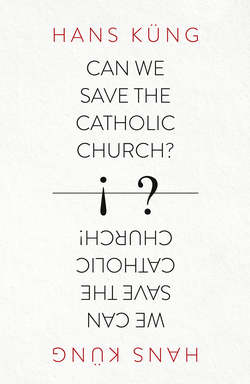Читать книгу Can We Save the Catholic Church? - Hans Kung - Страница 21
Bishops Prepared to Enter into a Dialogue
ОглавлениеIn December 2010, a specially commissioned report on the archbishopric of Munich and Freising – a former workplace of the seminarian, priest, professor and bishop, Joseph Ratzinger – concluded that between 1945 and 2009 at least 159 priests had committed acts of sexual or physical abuse in the archbishopric. The real number was probably ‘considerably higher’, according to Marion Westpfahl, the lawyer responsible for the report. However, only 26 priests were convicted of sexual offences. In the past, cases were systematically hushed up: ‘We are dealing with a widespread practice of destroying documents.’
Nevertheless, the fact that the Archbishop of Munich, Cardinal Reinhard Marx, allowed the incriminating report to be published and publicly admitted that these were the ‘worst months’ of his life, must be acknowledged with respect. It shows that some theologically conservative bishops are beginning to understand how serious the situation within the church is. The Archbishop of Munich and the Bavarian bishops have drafted a joint prayer for forgiveness and pledged to do more in terms of prevention and to work more closely with the public prosecution authorities. At the end of 2010, Archbishop Marx once again spoke out in favour ‘of a policy of openness, of looking more closely, and of transparency’. He considered the crisis and its aftermath to be far from over.
But Christian Weisner, the speaker of the reform movement We are Church, argues that to overcome the deep crisis of credibility it will be necessary to tackle the underlying problems, namely, the abuses of power, the inhibitions in dealing with sexuality, the lack of equality between men and women, celibacy … The bishops should not cherish the hope that the cases of abuse will be quickly forgotten: ‘The memory of these abuse cases is not going to go away.’ It is not enough to get these cases of abuse under control within the organization. Surely, all of the bishops need to recognize how serious the situation is.
To paraphrase the beginning of the famous poem of Heinrich Heine: ‘Thinking of Germany’s Church at night/puts all thoughts of sleep to flight.’ In 2010, despite two heavily promoted and expensive campaigns launched that year – the Year of Vocations and the Year of Priests – only 150 candidates responded from all over Germany. This is the lowest number ever reported. And how many of them will change their minds before they are ordained? Moreover, how many priests will die in the meantime? In view of the upside-down population pyramid of the Catholic clergy, it looks as though the celibate priesthood may die out in the foreseeable future.
But this is just another symptom of the dramatic loss of confidence the Catholic Church is facing. According to a study by the Allensbach Institute published in July 2010:
… the percentage of the general population that believes the Church to be capable of offering orientation on questions of morality has dropped from 35 per cent in 2005 to 23 per cent; between March and June 2010 alone it decreased from 29 per cent to 23 per cent. At the same time, the belief that the Church offers answers in the search for meaning has also declined. In 2005, around 50 per cent of the population still believed that; by March 2010 the figure was only 45 per cent, in June it was down to 38 per cent. (Frankfurter Allgemeine, 23 June 2010)
The latter figure is especially alarming because it concerns the Church’s core mission, and figures such as these should galvanize the church leadership into taking immediate action.
However, at the Second Ecumenical Church Congress in Munich (May 2010) the bishops never even mentioned any of the numerous reform movements. Since then, numerous articles, comments, letters to newspapers and personal discussions have shown them the extent to which unrest, resentment, frustration and anger have spread among the church laity and clergy alike. And so there have been indications of a slow change of opinion within the German Bishops’ Conference, and, if I am not mistaken, within other bishops’ conferences as well. On the eve of the autumn plenary meeting of the German Bishops’ Conference in Fulda in October 2010, the Bishop of Fulda, Heinz Josef Algermissen, who was hosting the conference, spoke of a ‘bottleneck situation’. He indicated that many questions were ripe for discussion, from sexual morality to celibacy. Such topics can no longer be kept under wraps. In truth, apart from the virtually incomprehensible official catechism, it is the increasing backlog of reforms, halted for many decades and culminating in the cover-up of widespread sexual abuse, which constitute the main reason for the current wave of people leaving the Church.
